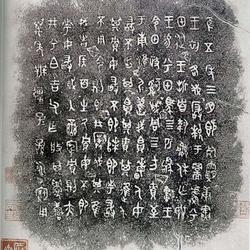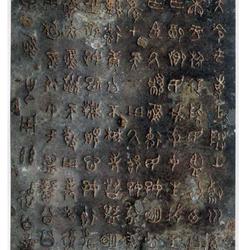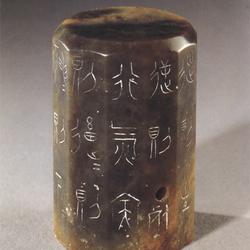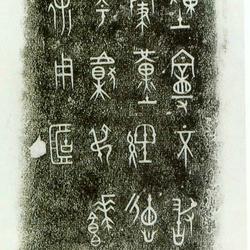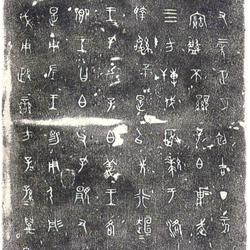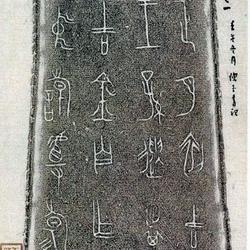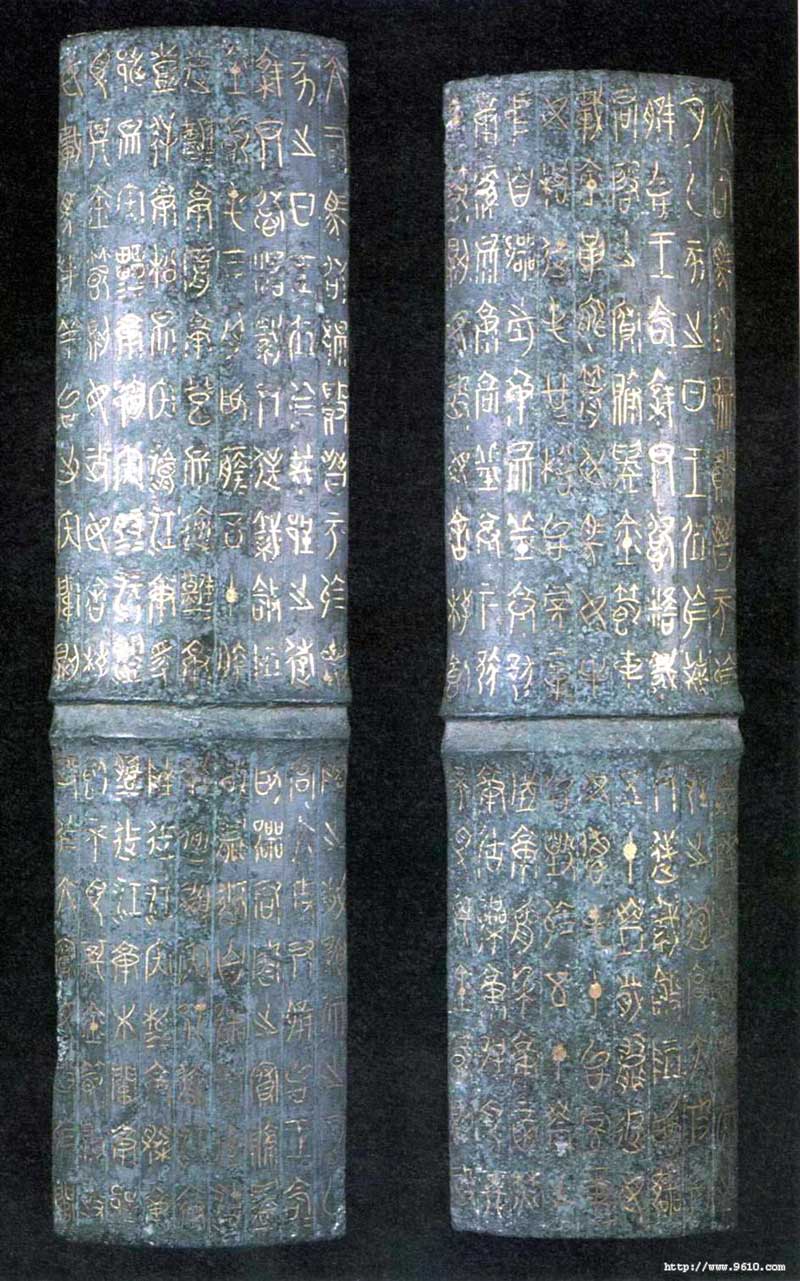
Warring States Period "Ejun Golden Festival" Collection of Anhui Provincial Museum
A festival is a land and water transportation certificate, which is equivalent to the current transportation pass. "Ejunqi Festival" was unearthed in April 1957 in Qiujia Garden in the south of Shouxian County, Anhui Province. It is divided into two types: boat festival and chariot festival. It is a Chu State artifact in the middle Warring States Period and was cast in bronze. The boat section (right) is mainly used for waterway transportation; the car section (left) is mainly used for land transportation. The owner of the goods and the officials each have the same rules when using them, and they can only pass after they are verified to be correct.
This time, 3 pieces of car festivals (the same form and inscription) and 2 pieces of boat festivals (the same form and inscription) were unearthed. The segment length is 29.6 cm, the width is 7.1 cm, the thickness is 0.6 cm, and the arc width is 8.0 cm. The scapula is 31 cm long, 7.2 cm wide, 0.7 cm thick, and 8.0 cm wide. The car section is for land transportation. Three pieces are the same size and can be assembled into a large semicircular "bamboo tube" (five pieces can be assembled into a complete one). Each piece has 9 lines of inscriptions with 16 characters in each line, totaling 150 characters (4 characters in heavy text). The boat section is a waterway pass, slightly longer than the car section. Each piece has 9 lines of inscriptions, 18 characters per line, a total of 165 characters (2 characters for heavy text and 1 character for combined text).
The inscription on the Golden Festival records that in the sixth year of King Huai of Chu (323 BC), King Huai of Chu issued a tax-free certificate for transporting goods to a man named E Junqi (the "E" in "E Junqi" is The place name, "Qi" is the name of Ejun. Ejunqi, whose courtesy name is Zixi, was the son of King Huai of Chu during the Warring States Period). The inscription stipulates in detail the E-Junqi waterway and land transportation routes, the size and number of vehicles and ships, carrying capacity, types of transported goods, prohibited goods, tax and tax exemptions, etc. It had great research value for the politics, economy, military, transportation, etc. at that time.
This "golden joint" is made of copper and is named "Jie" because it looks like a split bamboo joint. This kind of "car festival" and "boat festival" has only been seen so far, so it is extremely precious. In order to prevent forgery, the "wrong gold and silver" re-creation was carried out on the basis of inlay technology, so it is also called the "Wrong Gold Ejun Qi Jin Festival". The method of making gold and silver is also called "gold and silver". The method is to cast a waist groove when the bronze is cast, put the gold and silver pieces and silk into the groove, and then hammer it and grind it flat. This craft was produced in the Spring and Autumn Period and is used today. The inscription "Ejun Qijie" is tall and beautiful, round and vigorous, solemn and solemn, which is the best among gold inscriptions.
The inscription on the car festival is as follows:
In the year when the great Sima Zhaoyang defeated the Jin army in Xiangling, in the month of Xiapu and on the day of Yihai, the king lived in the Yougong Palace in Maoying. The great work of Yin is ordered by the king, and the orders are gathered by Yin and Ni. The order of Yin is the gold-casting festival of the mouth of Ejun. A car worth fifty rides can return at the end of the year. Do not carry gold, leather, horses, or arrows, such as horses, oxen, or specials. Gather ten to serve as a chariot. Carts are like galleys (sticks). Gather twenty and twenty (twenty) galleys to serve as a chariot. To be destroyed in fifty chariots. From Hubei to Gengfuqiu, Gengfangcheng, Genghuohe, Genghuofen (or Zuoye), Gengfanfu, Genggaoqiu, Gengxiapu (Cai), Gengjuhuan, Gengying. If you see the golden festival, don't fight, don't give up the food, but if you don't see the golden festival, fight.
The inscription on the Boat Festival is as follows:
In the year when the great Sima Zhaoyang defeated the Jin army in Xiangling, in the month of Xiapu and on the day of Yihai, the king lived in the Yougong Palace in Maoying. Da Gong Yin Pu Pu Gold Casting Festival. If there are three boats in the garrison and fifty cannons, they will be able to return at the age of one. Traveling from Hubei, crossing the lake, traveling to Han, Geng Ying, Geng Yin Fu, crossing Han, Geng Ying, crossing Xia, Nei Pu, crossing the river, Geng Pu (Peng) Pu, Geng Song Fu, Nei Hui Jiang, Gengyuan Mausoleum, Tu (She) River, Neixiang, Geng Pu, Geng Pu Fu, Nei Pu, Geng Bi, Nei Pu, Yuan, Li, Pu, Tu (She) River, Geng Muguan, Geng Ying. If you see the golden festival, don't levy it, and don't give up the food; if you don't see the golden festival, then levy it. If you carry horses, oxen, and messengers to get out of the inner pass, you will march to the big mansion, not to the pass.

